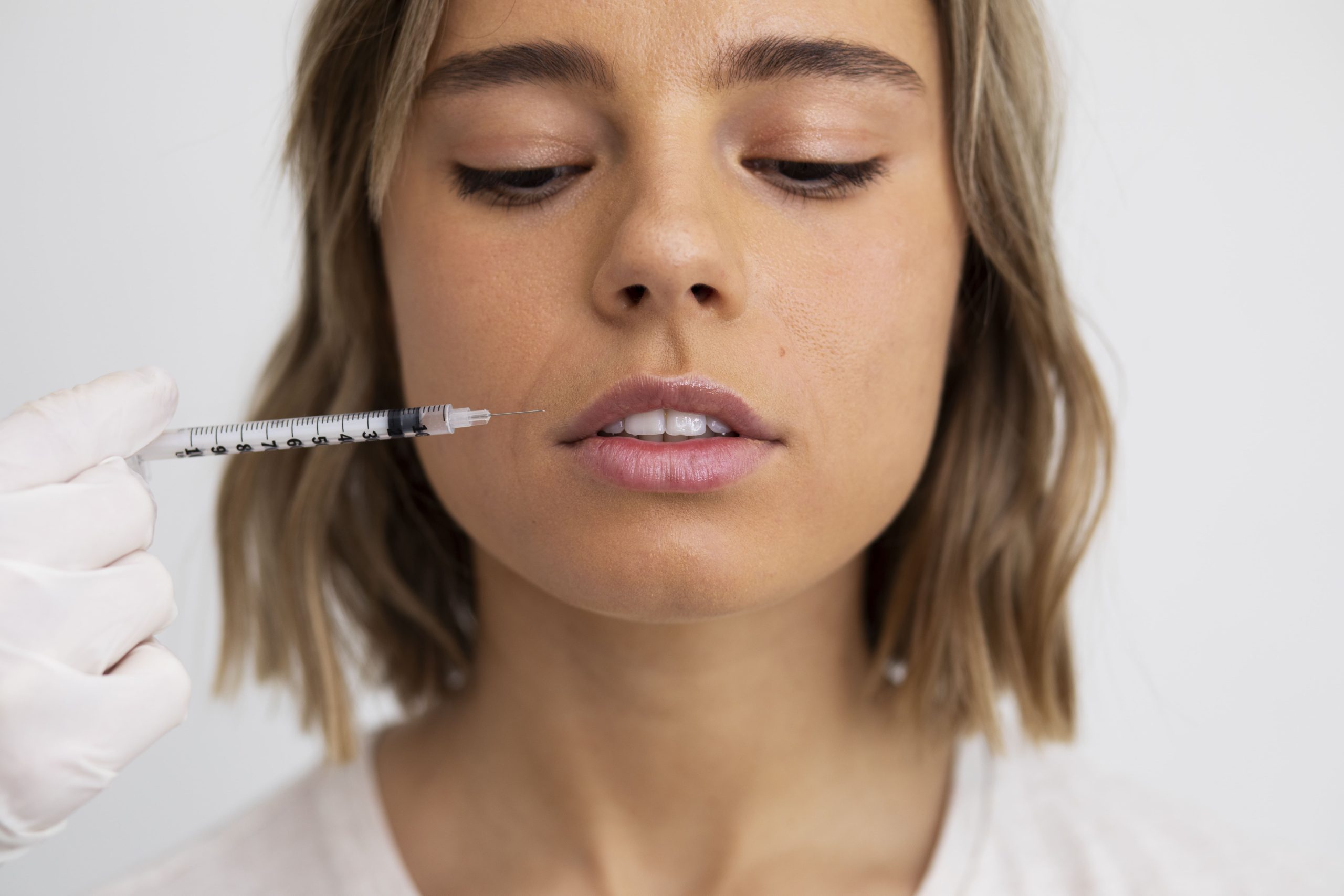How Long Does Chin Filler Last? Factors That Affect Longevity

There is a high demand for chin fillers in the world of aesthetic treatments, but the majority of potential users are concerned about the duration of the treatment’s effects. Having a good understanding of the longevity of the results is equally important for patients and for medical professionals who need to manage user expectations and plan adequate maintenance treatments.
The Effects of Chin Fillers
The key purpose of chin fillers is to provide patients with balanced facial features, but to be more specific, they can:
- Increase the size or the length of the chin.
- Improve the chin’s shape, whether it’s related to length, width, or having a more or less angular chin.
- Enhance the symmetry.
- Minimise the appearance of a so-called ‘prominent nose’ by bringing the chin forward to create a more balanced appearance.
- Reduce the appearance of a ‘double chin’.
- Create the illusion of a slimmer jaw.
- Reduce a ‘squared’ or a ‘pointed’ chin by making it more round.
Factors That Influence the Duration of Chin Fillers
Chin fillers usually last from 6 to 18 months before they require additional touch-up or maintenance treatments. Of course, their duration depends on several factors, so let’s take a look at the most important ones:
The Type of Filler Used
Different types of fillers come with various lifespans, so they may bring more lasting effects due to their composition or some other characteristics. For example, if you choose hyaluronic-acid-based fillers, know that the results will probably last between 6 and 12 months. However, the choice of a particular filler should only be made through a thorough consultation between the patient and a suitable aesthetician.
The Patient’s Age and Lifestyle
Age is an important factor here since younger skin has more collagen, which has the power to preserve the filler within the tissue for a longer period of time. As for lifestyle factors, there are two important segments to be aware of: excessive exposure to sunlight and strenuous physical activity. Exposing yourself to too much sun and engaging in strenuous exercise can increase your metabolism, which then causes the body to break down the filler content much faster.
The Body’s Metabolism
Metabolism plays an important role in almost all functions in the body, and the duration of chin fillers is no exception. To be more precise, the faster the metabolism, the shorter the lifespan of the filler. This also means that a slower metabolism might extend the effects of the filler, making them last up to 18 months. However, each body is unique, and it is impossible to predict exactly how one’s metabolism might respond to a chin filler.
Skincare Routine
Investing some time and money in the creation of a proper skincare routine can also prolong the effect of chin fillers. With regular use of sunscreen, adequate hydration, and balanced nutrition, you can maintain the integrity of the fillers and improve the overall health of your skin at the same time.
When Is It Time for a Touch-Up?
Of course, based on the patient’s initial goals, they will know when the effects of the filler have started to wear off. For instance, they might notice a gradual reappearance of wrinkles or a loss of contour in the chin area. Even though the touch-up treatments are individual, it is usually recommended to do them every 6 to 9 months to maintain the full effects. However, some patients are also satisfied with treatment corrections every 9 to 12 months.
How to Extend the Results?
Patients should follow these strategies to increase the longevity of chin fillers and prolong their effects:
Consult with a Skilled Provider
Choosing a skilled and experienced aesthetician is the key step for lasting treatments. First of all, that person will know how to buy dermal fillers that are most suitable for the patient’s current skin condition. After that, the choose medical expert will be able to recommend a suitable aftercare regimen, as well as a reasonable touch-up strategy.
Follow Adequate Aftercare Tips
Once patients get chin fillers injected, it is highly important for them to follow post-treatment instructions provided by their healthcare professional. This list of tips will probably ask the patient to refrain from touching or rubbing the treated area, avoid strenuous exercise, and stay away from excessive heat or cold. By following such instructions, patients allow the fillers to settle properly. Also, this minimises the risk of side effects and complications, so if a user would like to avoid seeing chin filler migration or chin filler swelling stages, it would be wise to follow the given instructions.
Avoid Smoking
Smoking can have a huge impact on the durability of chin fillers. It restricts blood flow to the skin, which leads to slower healing and reduced collagen production. That is why it can speed up the rate at which the filler breaks down and reduce its longevity. Even avoiding exposure to second-hand smoke can help patients maintain results for a longer time.
Embrace a Healthy Lifestyle
Besides avoiding smoking, which is obviously not good for one’s wellbeing, leading a healthy lifestyle can have a positive impact on the duration of the treatment results. For instance, eating a balanced diet full of vitamins and antioxidants can improve skin health and collagen production, which also helps the fillers last longer. On top of that, getting enough sleep, managing stress levels, and staying hydrated can also contribute positively to the longevity of chin fillers.
Protect the Skin from Sun Damage
Excessive exposure to harmful UV rays can also speed up the breakdown of fillers. This is why patients need to protect their skin with high SPF sunscreen, protective clothing, and also seek shade when the sun is at its strongest.
Follow the Recommended Touch-Up Plan
Medical professionals know that chin fillers naturally dissipate over time as the body metabolises the injected substance, and that is why they create a unique touch-up plan for each patient. Regular touch-ups, scheduled at reasonable intervals, can help maintain the desired contour and volume of the chin, ensuring lasting results.
Conclusion
People who are unhappy with the appearance of their lower face usually consider dermal fillers to improve the definition and the contour of their chin. Of course, the longevity of the results cannot be predicted, but if patients choose a trained medical professional who can create a proper post-treatment regimen and an efficient touch-up plan, the results can certainly be extended.
References:
- Chen B, Ma L, Wang J. Chin Augmentation With Hyaluronic Acid: An Injection Technique Based on Anatomical Morphology. Dermatologic Surgery. 2022;48(7):747-751.
- Go B, Frost AS, Friedman O. Using injectable fillers for chin and jawline rejuvenation. World Journal of Otorhinolaryngology – Head and Neck Surgery. Published online March 28, 2023.
Continue reading

Radiesse or Juvederm? Which One Should You Use for Facial Contouring?
Facial contouring is more than just adding volume – it’s about sculpting definition, correcting asymmetries, and enhancing structure. Achieving those goals requires the right product, precise technique, and a deep understanding of dermal filler properties. Among the most commonly used injectables in aesthetic medicine, Radiesse and Juvederm stand out as…
Read More
Radiesse vs Sculptra: Which Collagen-Stimulating Filler Is Better?
As the popularity of natural beauty trends, like the no-makeup makeup look, continues to rise, the demand for subtle, long-lasting enhancements has reshaped the filler industry as well. More patients are turning to treatments that enhance their features while correcting concerns like uneven texture or volume loss, all without compromising…
Read More
Non-Surgical Jaw Definition: Radiesse Jaw Before and After Transformation
In the age of defined features and sculpted profiles, jawline contouring has become one of the most in-demand aesthetic procedures among both male and female patients. But not everyone is ready for surgery or permanent changes. That’s where non-surgical options like Radiesse jawline enhancement come in, offering a high-impact transformation…
Read More